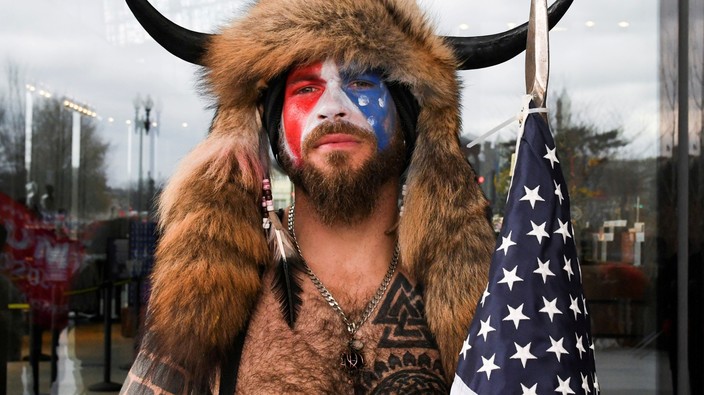voters who value the concept of dominant masculinity are more likely to support president donald trump than those who do not, according to new research that sheds light on the appeal of the controversial commander in chief in the dying days of his administration.the series of seven studies in the proceedings of the national academy of sciences of the united states of america, explores the appeal of “hegemonic masculinity” — a form of idealized manhood where white, heterosexual males hold status and power over women, gay men, minorities and pretty much everyone else.this self-serving philosophy has some definite advantages, said theresa vescio, lead author and professor of psychology at pennsylvania state university,
according to cnn. “what this work shows is that masculinity is not just an ideology that men strive to achieve — it’s something we value as a culture,” she said. “the beauty of masculinity as cultural ideology is we can get women to participate in it and endorse it, even though it’s subordinating them. we can get men of colour, low socioeconomic status men, gay men to endorse it even though it’s implicitly subordinating.”half of the observational studies — which reveal correlation, not causation — found that people who endorsed the concept of a dominant male hierarchy were more likely to support the outgoing president. adherence to this ideology trumped whatever cocktail of sexist, racist or homophobic attitudes voters might also hold. it might also explain how trump’s popularity has grown among some white women and latino and black men.researchers arrived at their results by polling more than 2,000 people over two presidential election cycles, beginning after trump’s victory over hillary clinton in 2016 and concluding 50 days before joe biden became the president-elect last november. participants were pulled from pennsylvania state university’s student body and two crowdsourcing apps. while researchers found “prejudiced attitudes were more consistent predictors of voting,” an adherence to male dominance predicted support of trump specifically.the study has drawn some skepticism from matthew feinberg, an associate professor of organizational behaviour
at the rotman school of management in toronto, who told cnn other factors may be at play.“it may be that people’s attitudes, especially about masculinity, were shaped by trump becoming president,” he said. “many people held their nose and voted for him in 2016, choosing to vote for their preferred party in spite of trump’s behaviour and his representation of hegemonic masculinity.“however, processes such as cognitive dissonance dictate that people often reconcile their attitudes with behaviours they’ve engaged in. if so, people whose attitudes about trump and his endorsement of hegemonic masculinity might have come to convince themselves that they too hold attitudes more in line with trump.”vescio said they have considered the role of cognitive dissonance and noted it would not account for the results of the study that occurred before — not after — the 2020 election. “we can’t completely rule it out,” she said. “but the data aren’t quite consistent with that because even when we control for republican and democrat we get the effects over and above that.”the findings line up with previous research that has shown trump voters value dominance and place a low value on cooperation, according to christopher federico, a professor of political science and psychology at the university of minnesota, who was not involved in the work. “it makes sense that individuals who value a form of masculinity that emphasizes control, toughness, and so on (would support trump, just as) individuals who hold traditional views of gender and traditional beliefs about the ‘proper’ roles for men and women to have in society tend to support trump more as well.”
dave yasvinski is a writer with healthing.cadon’t miss the latest on covid-19, reopening and life. subscribe to healthing’s daily newsletter covid life.
 3 minute read
3 minute read









